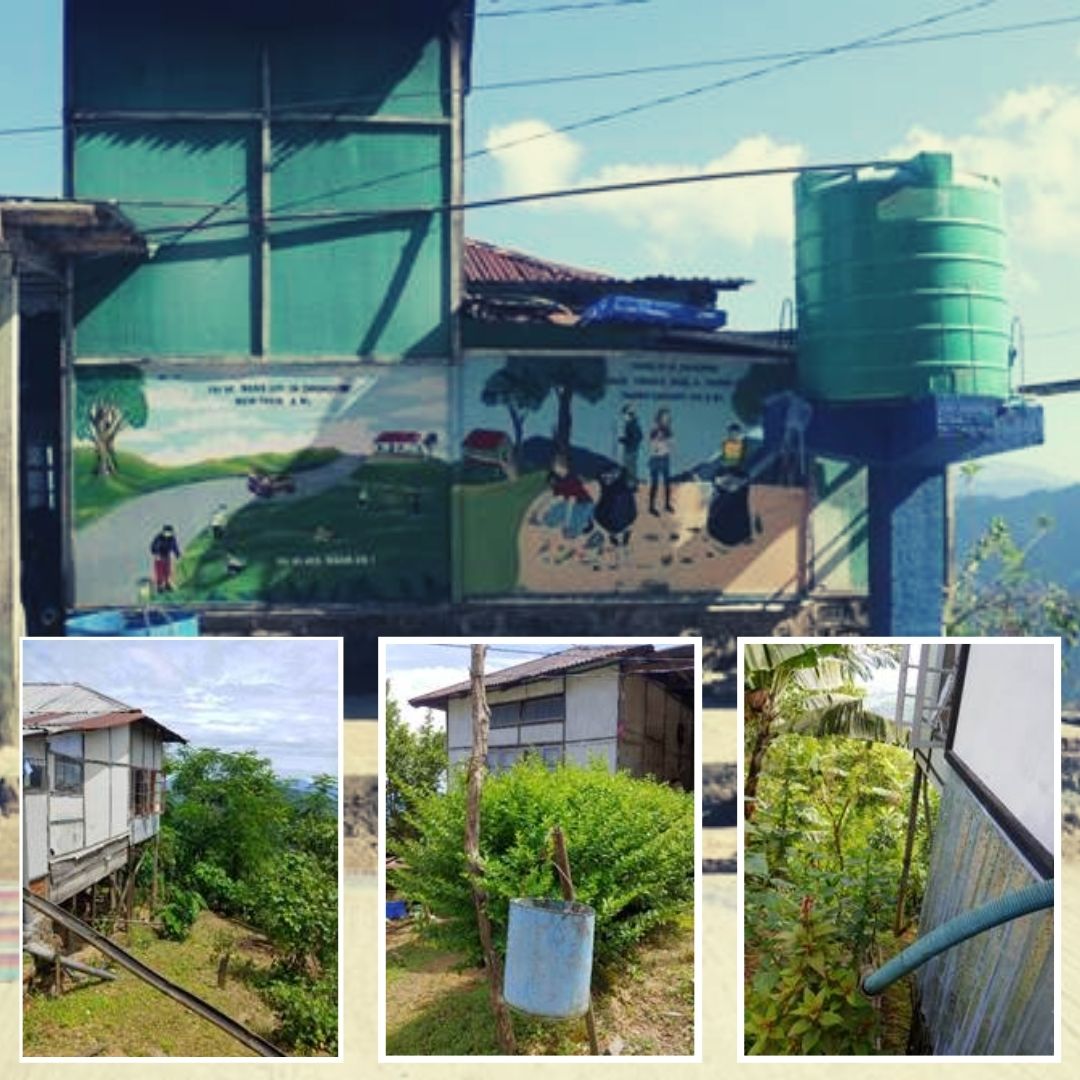
Image Credit- PIB
Proud Moment! South Maubuang Becomes First Open-Defecation Free Plus Village Of Mizoram
Mizoram, 28 Jan 2022 8:03 AM GMT | Updated 28 Jan 2022 8:07 AM GMT
Editor : Shiva Chaudhary |
A post-graduate in Journalism and Mass Communication with relevant skills, specialising in content editing & writing. I believe in the precise dissemination of information based on facts to the public.
Creatives : Shiva Chaudhary
A post-graduate in Journalism and Mass Communication with relevant skills, specialising in content editing & writing. I believe in the precise dissemination of information based on facts to the public.
South Maubaung, a village in Mizoram, has become the state's first Open-Defecation Free (ODF) plus village. It worked in the areas of ODF sustainability, biodegradable waste management, liquid waste management, plastic waste management and faecal sludge management.
Taking a step ahead towards the Swachh Bharat Mission, South Maubuang village, located in the Aibawk block of Aizawal district in Mizoram, has become the first Model ODF (Open-Defecation Free) Plus village of the state. It has managed to fulfil all the standards according to SBM-G (Swachh Bharat Mission- Grameen) Phase II guidelines.
The information was given by the Ministry of Jal Shakti, Government of India, who published a press release.
What Is ODF Plus Village?
ODF Plus village is defined as a village that sustains its ODF status, ensures solid and liquid waste management and is visually clean.
A village declared as a Model ODF Plus should meet the following requirements. Such as, village—households have access to a functional toilet facility; schools, Anganwadi centres, panchayat ghar have access to a functioning toilet with different male and female toilets; minimal litter, stagnant water and zero plastic waste dump at public places; arrangements for solid and liquid waste management is there, and the villages should prominently show ODF Plus IEC (Information, Education & Communication) messages through wall paintings, billboards, etc.
How Village Attained The ODF Plus Status?
As per the official data, the entire community of the village, which comprises 649 individuals belonging to 116 households, was involved in achieving this status. Here is how the village achieved this status;
ODF Sustainability
The village has three schools, two Anganwadi centres, a community hall and Bharat Nirman Rajiv Gandhi Seva Kendra hall, and all these have suitable toilet facilities. The schools have separate toilet facilities for girls and boys. Later on, a community sanitary complex was built near the community hall for people gathering there for events and functions.
Biodegradable Waste Management
Last year, in 2021, the village got the National Panchayat Award with a prize money of Rs 5 lakhs. The village council utilised the money towards improving solid waste management in every household. As a result, 98% of total households have the facility for treating biodegradable waste material. With the help of SBM-G and MGNREGS funds, community compost pits were built in schools and institutions.
Liquid Waste Management
Coming to liquid waste management, the households on the downhill side of the roads have their greywater flow into their kitchen gardens and hence, don't require soak pits. The natural treatment of greywater results in good quality vegetables like beans, maise, mustard, pumpkin, snake beans, etc. and is utilised by the villagers themselves.
Plastic Waste Management
Plastic has become a day-to-day problem and a significant cause of pollution, but the story is different in South Maubuang village. The Village Water and Sanitation Committee collects plastic waste from each household every week and is put in the plastic waste collection area of the village. After a significant amount of plastic gets collected, it is sent to the Plastic Waste Resource Management Centre in Aibawk, where it is sorted, shredded or fed into the bailing machine. The Children's Sanitation Club also obtains plastic in exchange for toffees.
In order to keep the village clean, plastic bins are located across the village, and villagers have taken a resolution to ban single-use plastics.
Faecal Sludge Management
Village Water and Sanitation Committee also look after proper treatment of faecal sludge with active community participation. The village has moved from traditional trench pits to single pits in the Swachh Bharat Mission Phase- I, and presently, all households have either twin pits or septic tanks, the latter one connected to soak pits.
Also Read: Environment-Friendly Solutions: This Stationery Brand Offers Upcycled Paper For Conscious Purchases
 All section
All section













